Can We Talk: Nine students lost in Sydney high school suicide ‘cluster’
A tragic ‘cluster’ of nine student suicides on Sydney’s north shore and the loss of Tumut schoolboy Ethan Day have highlighted the need for more mental health resources at school. The Sunday Telegraph’s Can We Talk campaign is asking the government to make some important changes. FIND OUT MORE
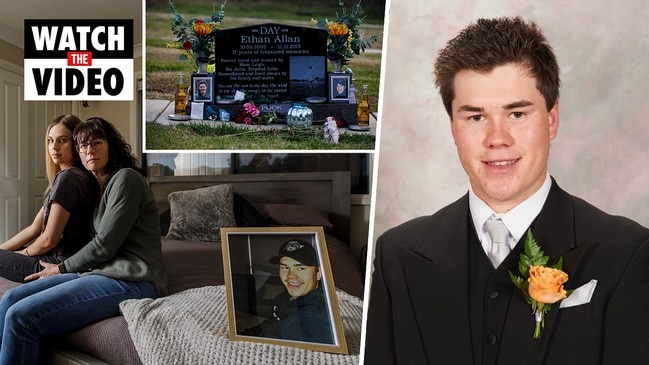
NSW
Don't miss out on the headlines from NSW. Followed categories will be added to My News.
- Teen suicide victim let down by the system
- Youth mental health organisation funding at risk
- 150-person ripple effect of student suicide ‘cluster’
School communities on Sydney’s north shore are reeling after a cluster of student suicides has seen three deaths in the past month and nine since January.
Most of the teenagers were in Year 12, with two students at an all girls’ school being close friends. Experts say there will be a spike in suicides statewide, and highlighted a severe lack of counselling and mental health resources in schools.
Tumut schoolboy Ethan Day also took his own life, in November last year, let down by a lack of support services.
Today, The Sunday Telegraph launches a campaign for more mental health resources for schools and more training for teachers.
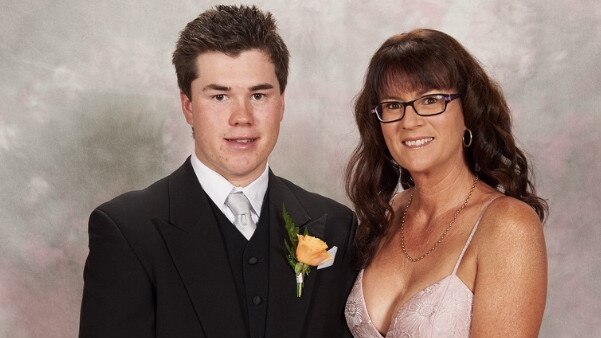
The added pressures the COVID-19 pandemic is placing on students, especially those doing their HSC, has exacerbated the problem.
“If we do not get on top of this issue it is just going to grow in numbers,” one principal of a large Sydney high school said yesterday.
“We are worried about COVID-19, extremism and other things, but self-harm is the biggest killer at the moment,” they said.
“COVID is having a big impact on our kids.”
MORE FROM BEN PIKE:
My violent dad’s suicide shattered me, but his love re-made me
How Joel Brown’s suicide impacted eight of his closest friends and family
In the past month a private girls’ school lost two Year 12 students, who were friends, while a nearby boys’ school has also been rocked by the loss of a final year student.
A north shore public high school also lost a Year 12 boy to suicide in July.
The Sunday Telegraph has chosen not to name the schools so as not to add to the distress of the families and the school communities.
Hornsby State Liberal MP Matt Kean, who started the Hornsby Ku-ring-gai Youth Mental Health Forum two years ago, said he has been in contact with a number of families suffering as a result of the recent suicides.
“Just when the community had been through enough this year, we are dealing with this tragic loss of young life,” Mr Kean said.
“COVID-19 is making it harder for young people who are unable to get the support and camaraderie from their friends that they would get in a normal year.”
One mental health expert said: “We’ve had a spike in youth deaths in the past few weeks which is heartbreakingly preventable.”
“There have been many more close calls in the northern region (of Sydney) than you would’ve heard about,” she said.
NSW Health statistics for August reveal there has already been an 11 per cent increase in phone and video calls about mental health and a 3 per cent increase in self-harm/suicide ideation presentations to hospitals.
The NSW Government says it has invested $80m in mental health programs in response to the virus.
PANDEMIC YOUTH SUICIDE WARNING
Isolated workers, the unemployed and desperate young people fearful of the future are expected to be part of an additional 1222 suicides across the state.
Sydney University’s Brain and Mind Centre predicts COVID-19’s prolonged economic impact will increase the number of suicides in 15-24-year-olds by 30 per cent in the next five years.
There is also expected to be a 27 per cent increase in the number of young people presenting to the state’s hospitals because of self harm.
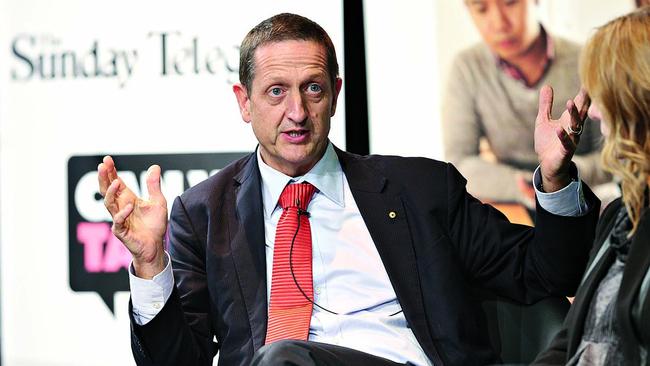
The sobering figures, obtained exclusively by The Sunday Telegraph, are based on the most recent RBA economic update.
“Given how traumatic and tragic death by suicide are for families and the community, we should be doing everything we possibly can to prevent it,” Brain and Mind Centre co-director Professor Ian Hickie said.
“Beyond by death by suicide, the self harm and emergency presentations – the pressure that is going to result in emergency departments and mental health services – is going to be huge.”
NSW Health statistics for August reveal there has already been an 11 per cent increase in phone and video calls about mental health and a 3 per cent increase in self-harm/suicide ideation presentations to the state’s hospitals.
Prof Hickie said NSW youth mental providers are reporting increasing pressure on them to urgently see young people, particularly those in Year 11 and 12 who are perturbed by the change in circumstances and what their future holds.
There are also concerns that some distressed young people are reluctant to talk to their parents because they can see the economic and job stress their elders are under.
The RBA’s August economic outlook predicts unemployment will peak at 10 per cent in December this year before dropping to 7 per cent to the end of 2022.
Prof Hickie said the Federal Government needs to consider $200 million over three years for urgent intervention for people of all ages in NSW who have attempted suicide or self-harmed.
He said extending JobKeeper to at least 2022 – rather than the current March 2021 cut-off – would also help save lives.
“We also need specific educational programs to encourage young people – when they can’t travel overseas or take a gap year – that education is a good thing to do at the moment,” he said.
“This is particularly in industries where there is strong demand in the future, health, human services, IT, areas where there are good jobs. Now is a good time to study.
“But for those whose families do not have the financial means to simply support that, that the government needs to support that through vocational education and training and the university sector and higher education.”
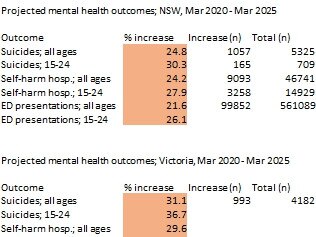
A NSW Department of Education spokeswoman said the department works closely with partner agencies including NSW Health, headspace and Be You to implement a co-ordinated approach to responding to suicide and preventing suicide.
“We have developed a range of resources for staff, students and parents to support the mental health and wellbeing of our students,” she said.
“This includes facilitating the referral of at-risk students to professional counselling services.”
The NSW Government has made a $88.4m commitment to provide every public high school with a full-time counselling support service on-site as well as a student support officer.
Mental Health Minister Bronnie Taylor said: “Every precious life lost to suicide is a tragedy that has a devastating ripple effect across families and the whole community”.
“That’s why the government in its Towards Zero Suicides program is focusing on community based suicide prevention and ensuring young people have access to this,” she said.
SCHOOLS NEED MORE COUNSELLORS
Struggling students urgently need more school counsellors and teachers trained in mental health first aid if NSW is to address alarming rates of youth suicide.
The state’s youth suicide rates are at their highest level in 15 years, with 54 people under the age of 18 dying by suicide in 2016 and 2017.
But only an estimated 1085 counsellors are working in NSW public schools and experts warn there needs to be a significant increase to arrest spiralling levels of youth distress.
Some large public high schools are serviced by part-time resources or share counsellors with other schools despite having student bodies numbering well over 1000.
The Sunday Telegraph is calling on the state government to increase the number of school counsellors to at least one for every 500 students.
These were levels agreed to in 2018 but never reached.
We are also calling for mental health first aid to be taught to all current and future NSW teachers.
Mental health first aid is a critical skill set for teachers in knowing how to listen to struggling students, refer them on to appropriate care and help avoid yet another tragedy.
The courses cost as little as $200 per teacher but most schools say they can’t afford to train all — or even most — of their faculty.
The push is supported by the executive director of youth mental health organisation Orygen, Professor Patrick McGorry.

“Counsellors in schools should be clinical psychologists and there should be a lot more of them in schools than there are now — but aiming for one in every 500 students is a step in the right direction,” Prof McGorry said.
“Mental health first aid has also been shown to have positive outcomes for teachers who do the course, although I would like to see more input from young people in the design of the program in the future.”
Sydney University Brain and Mind Centre co-director Ian Hickie also backed the campaign but said there needed to be strong connections between the schools and local mental health services.
“Mental heath first aid needs to be one of a concerted suite of investments that actually deliver effective care for those who are at greatest risk; it can’t be a one session, ends with the teacher situation,” Prof Hickie said.
“There needs to be a connection between the counsellor and local services.”
The Federation of Parents and Citizens Associations of NSW, headspace, NSW Labor education spokeswoman Prue Car and the former head of youth services peak body Youth Action, Katie Acheson, have all pledged their support to increasing the number of counsellors in NSW schools.
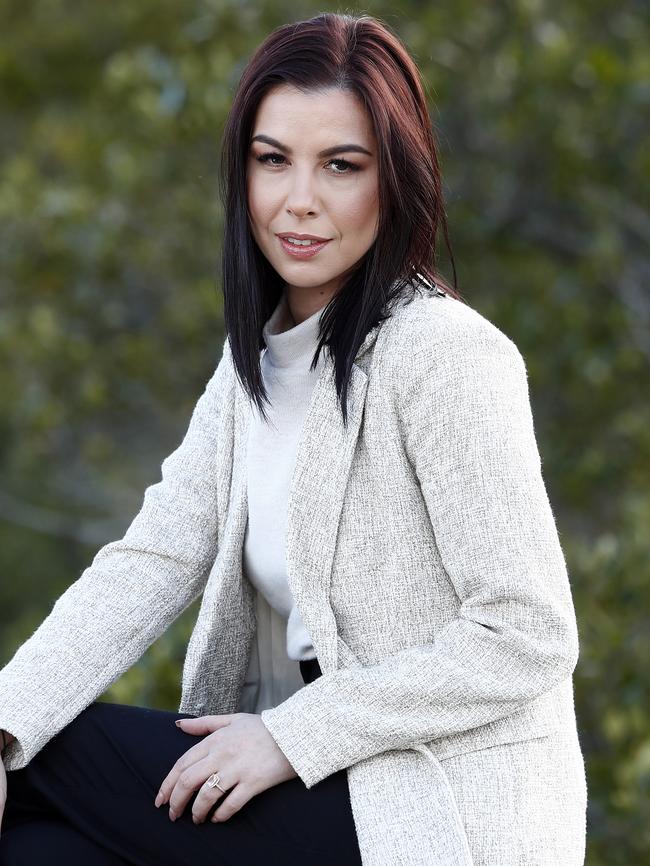
In a recent report, the NSW Ombudsman’s child death review team found “many of the young people whose deaths we reviewed had contact with school counsellors for assistance with issues including mental health concerns, school attendance, learning difficulties, behavioural issues and bullying”.
“Importantly, for some young people, school counsellors and other school staff were the only services involved with them,” the report said.
Over the 15-year period to 2017, suicide claimed 281 school-aged children.
Since 2003, there has been a significant increase in the suicide rate of young people.
The rate in 2017 (3.8 deaths per 100,000 young people) was the highest observed in this period, according to the NSW Ombudsman’s child death review team.
Alena Farrugia’s Beyond Limits Learning Clinic has run more than 100 mental health first aid sessions for about 3000 teachers. She said many teachers had a fear of doing the wrong thing and intervening.
Education Minister Sarah Mitchell said the government was rolling out an $88.4m election commitment to improve mental health and wellbeing support in schools.
“By July 2023, every public high school in NSW will have either a school counsellor or psychologist on site, as well as a full-time student support officer,” she said, adding student support officers provided an all-round service.
